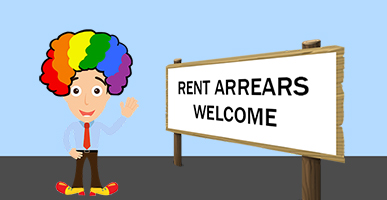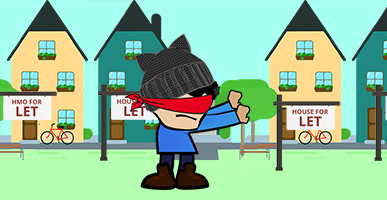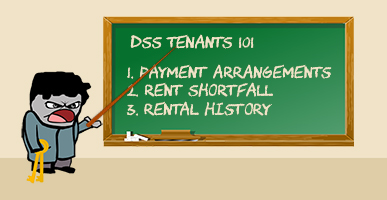The odds are that if you’ve ever been on the hunt for tenants, whether it be through a letting agent or privately, you would have received an application from a DSS tenant.
There’s a lot of controversy around DSS tenants; many landlords simply refuse to house them because of the perceived added risk they being to the table, while some believe it’s immoral and discriminatory to refuse them.
Let’s go through some of the details…
What is a DSS tenant?
DSS stands for Department of Social Security.
A DSS tenant is someone that receives ‘housing benefits’ from the council due to financial difficulties, typically due to unemployment, disability, and/or single parent status. Essentially, the Government provide a monthly allowance for living expenses to those in need – which often contributions towards rent.
Unfortunately, DSS tenants get an extremely bad wrap, and they’re mostly associated with negative connotations. They’re stereotypically seen as scroungers, drug-addicts, and nightmare tenants. While that’s true in many cases, there’s definitely also a big case of tarring everyone with the same brush going on. There are definitely genuinely good DSS tenants around!
DSS is now DWP
DSS (Department of Social Security) is now officially known as DWP (Department for Work and Pensions).
From a landlord’s perspective, it’s essentially the same thing, it’s still referring to tenant claimants receiving benefits due to financial difficulties.
However, most people are still more familiar with the term DSS. But for the sake of clarity, I just want to highlight that we’re talking about the same thing here.
The DSS set-up process
For a landlord, the setup process for a DSS tenant isn’t much different than taking on a regular private tenant, but there are some slight differences. Actually, to be precise, the extent of the difference is just completing an extra form.
The viewing process is as normal; the DSS tenant will arrive at the property and take a viewing. If the prospective tenant likes the property, and the landlord is happy to proceed, then a Pre-tenancy Determination form needs to be completed and handed to the tenant’s housing officer.
The council will then determine the house value and then access the situation of the person requiring the rent and make a rental offer. Once this has been received and accepted on both sides, a regular Tenancy Agreement should be drawn up (the landlord is responsible for this).
At this point, the tenant’s housing officer will typically ask for a copy of the tenancy agreement, or at least request to view it, at which point the process of setting up the payments will begin.
Each local council operates slightly differently, some allow direct payments to the landlord (i.e. the council will pay rent directly into the landlord’s account), while others pay directly to tenants, in which case the tenant will be responsible for paying rent to the landlord. Needless to say, most landlords prefer the former setup.
Before accepting a DSS tenant!
I can’t emphasise the importance of ‘research’ when it comes to accepting DSS tenants.
My first ever tenant was claiming housing benefit, but I actually had no idea what that entailed. However, I made the mother of all mistakes when I blindly trusted my letting agent and gobbled up his bogus sales pitch, when he told me that DSS tenants equate to “guaranteed rent” because the council pay their rent.
Believe me, that couldn’t be further from the truth. It’s true in the sense that the council does contribute towards their living expenses, but the “guaranteed rent” part is total bullshit. Don’t buy it if that’s what you’re being sold.
After years of experience, I’ve realised that letting agents and DSS tenants themselves, are notorious for selling landlords a false dream when it comes to the reality of the situation. So, if you’re contemplating the possibility of accepting a DSS tenant, do your research first!
To clarify, I’m not saying landlords should never accept DSS tenants, I’m just saying don’t be mis-sold by blatant lies.
There are both advantages and disadvantages to DSS tenants. However, and I say this with regret, I personally believe the negatives far outweigh the positives. But feel free to make your own mind up! If you’re open to accepting DSS tenants (which many landlords are), you may want to look through my top tips for landlords considering DSS tenants.
Letting agents and DSS tenants
If you’re using a high-street agent to find tenants on your behalf, and they offer you a DSS tenant, I would look them square in the eye and tell them to shove it where the sun don’t shine, because DSS tenants are easy to find for free, and you really shouldn’t need to pay an agent to source one for you.
Why am I getting so many enquiries from DSS tenants?
If you’re trying to find tenants without a letting agent and you’re getting inundated with applications from DSS tenants, don’t be alarmed, it’s perfectly normal.
In July 2020, a Judge ruled it unlawful (on the basis of breaching Equality laws) for landlords and letting agents to flaunt “NO DSS” signs in their shop windows and adverts, as well as rejecting tenancy applications from anyone purely because they’re in receipt of housing benefit, as was common practise. Although the ruling does not set a legal precedent, it is something to bear in mind.
However, even with the ruling, DSS tenants will always find it difficult to find housing, simply because many landlords and letting agents prefer working tenants that aren’t reliant on income support.
The situation isn’t black and white, there are various reasons for why landlords and agents still favour non-DSS tenants, and most of the reasons are regrettably through no fault of the claimants. The benefits system is fundamentally broken, in my opinion. That’s the real problem.
In any case, many DSS tenants are desperate for permanent accommodation, and with the housing crisis getting worse by the day, the situation isn’t getting any easier for them. The sad reality is, the market is swamped with DSS tenants desperate for private housing.
Be warned, many claimants don’t even admit they’re in receivership of benefits until after the viewing. Again, you can’t blame them. From my experience many try to win you over with their good intentions and personality during the viewing, with the hope of making you realise “they’re not all the same”
I agree, they’re not all the same. As with every type of tenant, including working professionals, you’ll find both good and bad examples.
Disclaimer: I'm just a landlord blogger; I'm 100% not qualified to give legal or financial advice. I'm a doofus. Any information I share is my unqualified opinion, and should never be construed as professional legal or financial advice. You should definitely get advice from a qualified professional for any legal or financial matters. For more information, please read my full disclaimer.


 Landlord Products / Services
Landlord Products / Services

















